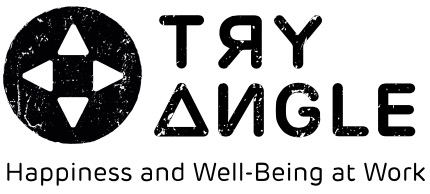Is Belgium’s 4 day work week 32hr or 36hr?
Belgium Country Partners, Tryangle – Happiness & Well-Being at Work, examine Belgium’s past, present and future plans for a 4 day work week – a 32 hour working week with full time pay.
How Belgium introduced the 4 day work week
At the end of 2022, Belgian policymakers introduced the Labor Deal: a series of measures to reform the labor market with the aim of greater flexibility and a better work-life balance.
One of the pillars revolves around the 4 day working week. However, this specific Belgian setup differs from the global pilot projects under the same name, such as in the UK: in addition to the 5 working days of 8 hours, employees in Belgium can now opt for 4 longer working days of 9.5 hours.
How common is the 4 day week in Belgium currently?
We do see some movement on the labor market as a result of this initiative, but the success remains relatively limited: According to figures from Acerta, at the end of October 2023, Belgium had around 1.9% of employers that employed people with a full-time four-day working week. according to this Belgian 38 hour or 40 hour principle.
How many hours do people work in Belgium?
Working hours in Belgium have not evolved since 2003. Twenty years later, the world now looks very different. Is this perhaps a signal that the five-day working week is high time to make way for a 32-hour working week?
Belgium to trial a real 4 day work week in 2024
Pioneers previously introduced the concept in Belgium, such as Femma in 2019. Tryangle also switched to working 32 hours as a full-time work regime in September 2023. Ghent University and the Federal Planning Bureau are currently also examining a pilot study* to gain insight into the results of 80% working time and 100% wages. (*Registrations for this study have now been completed, but we will keep a close eye on the results and learnings!)
Debate in Belgium around the 4 day week
In February 2024, a lively debate arose following PS chairman Paul Magnette’s proposal about a collective reduction in working hours to a 4 day working week of 32 hours without loss of pay.
As a plaything of the election debate, Belgian politicians are dishonoring the 32-hour week by throwing unfounded accusations back and forth and making a monologue about the high wage costs in Belgium, which would make a shorter working week unaffordable.
Our opinion? Rome was not built in a day and change is simply not an easy process.
Carl Jung already said it – There is no change from darkness to light, from standstill to movement, without emotion. Our society is changing at a rapid pace. Technological improvements and the impact of AI are thundering over us. Home work, remote work, hybrid meetings and even workations have become an indispensable part of our professional reality.
The stress and burnout epidemic, the labor market that is on fire, but also the arrival of new generations with outspoken wishes and expectations regarding work, flexibility and work-life balance make organizations think about how things can be done differently.
Figuring out how we can organize work differently, how we can work smarter and more effectively, but also healthier, more fun and happier, possibly adapted to individual preferences and phases of life is certainly part of this!
Why should Belgium trial a 4 day work week?
As far as we are concerned, the 32-hour week is one of the many fascinating initiatives that can be put on the table in this context in the search for a win-win solution with more attention to both well-being and productivity.
No, it is not a stand-alone story, nor a miracle solution that can be rolled out everywhere without further ado. It can be part of a larger business strategy with different pillars, and where the best results are achieved through a total approach, tailored to the needs and culture of the company, with the necessary trial and error, supporting measures at all levels and good practical agreements.
In this way, more people-oriented solutions, a positive and constructive work culture, strong leadership and inclusive collaboration can lead to many impressive savings and benefits, both in terms of well-being and performance, and therefore deliver a solid ROI.
I’m a Belgium business interested in trialing a 4 day work week, now what?
Speak with your 4 Day Week Belgian Country Partners, Tryangle – Happiness & Well-Being at Work, to understand next steps in trialing a 4 day work week with the support and expertise of 4 Day Week Global, the world’s leading organization in reduced hours working.
Want to get started with a real four-day work week in your company?
Are you a Belgian organisation and interested in the 4 Day Week Global Pilot programme?






